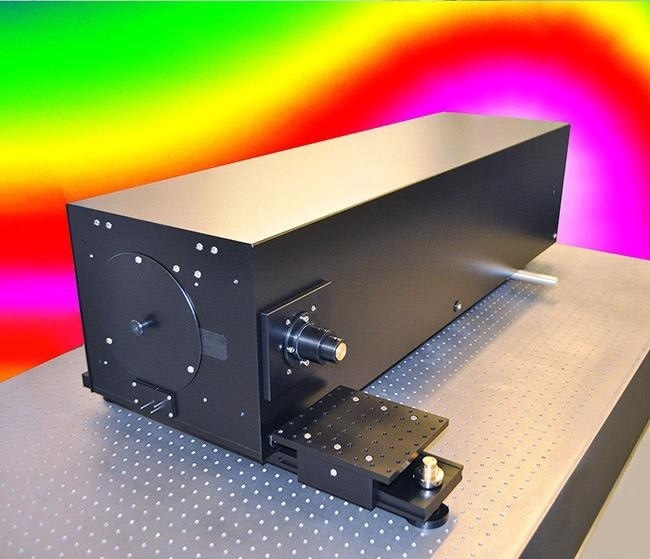
An example of an Infrared Collimator. Image Credit: Optical Surfaces Ltd.
Optical Surfaces Ltd. is a leading supplier of off-axis parabolic and flat mirrors, the key optical elements in Infrared (IR) collimators commonly used for evaluating the performance of thermal imaging systems.
The function of an IR collimator is to generate a thermal image closely resembling the thermal scene at a test plate. Performance tests often performed on Thermal Imaging systems include measurement of the Minimum Resolvable Temperature Difference (MRTD) and the Modulation Transfer Function (MTF). The importance of MRTD testing lies in the fact that it relates to a thermal imaging system’s effectiveness for discerning details in a scene. MRTD values provide estimates of resolution capability allowing comparison of one thermal imaging system with another. The MTF is a tool for optical designers to quantify the overall imaging performance of a system in terms of resolution and contrast. Knowledge of the MTF curves of the lenses and camera sensors involved in a thermal imager may be used for quantification and optimization of the system performance.
Parabolic mirrors are the most common type of aspheric used in optical instruments. They are free from spherical aberrations, and therefore can focus a parallel beam to a point or a point source to infinity. Off-axis parabolic mirrors provide an unobstructed aperture allowing complete access to the focal region as well as reducing the size and minimising the weight of a design. They are especially suitable for infrared waveband applications due to their completely achromatic performance. Using proprietary polishing techniques, the team of experienced engineers and craftsmen at Optical Surfaces Ltd. can routinely produce a surface accuracy of better than lambda/20 p.v. and surface roughness of less than 1 nm on off-axis parabolic mirrors produced for IR Collimators.
Working with high-stability materials such as Fused Quartz and Zerodur, in a unique thermally stable manufacturing environment, Optical Surfaces Ltd can routinely achieve a surface accuracy of better than lambda/10 p.v. and surface roughness of less than 1 nm on flat mirrors. Over the years - Optical Surfaces has developed expertise to mitigate the uncertainties associated with coating to ensure flatness of mirrors, and hence is able to improve the performance of flat mirrors used in IR Collimators.